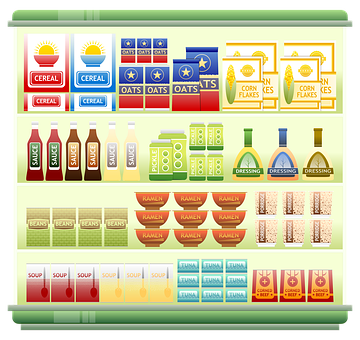You know how you listen when your mother shares from her wealth of experience? Well, when she shares from her mother’s experience…you share with your friends. Here it is, in her own words. Enjoy!
I remember a hint from one of Mom’s books. In order to be prepared for unexpected company (or always ready to be hospitable), have an emergency shelf in your pantry. It’s a really good idea.The emergency pantry stash has a dual purpose.
- It has the makings of a simple but tasty meal that you could pull together with little warning and no trips to the store. It would fill the need if you had unexpected company drop in at meal time or if you needed to quickly pull together a meal to share with someone in need.
- Secondarily, it ensures that there is always the makings for a full meal in your pantry, even if you have had some unexpected interruptions in your normal routine that might catch you needing to feed the family but not having some necessary ingredients.
 For example, the emergency stash might contain a box or two of pasta and/or dry potatoes, a can or two of meat such as chicken or ham, a jar of pasta sauce, a couple cans of vegetables, a can of fruit, pickles, olives, canned milk, and a brownie mix. I always keep a box of Rice Krispies and marshmallows on hand. They make a simple, but quick, dessert or snack.Everything on the list has long enough shelf life to last a while. None on this list are the sort which would cause you to call an emergency within a few days of stocking. I had a friend who always kept a box of assorted fancy cookies on hand. They went well with a cup of coffee or tea or as a dessert after the meal. I’d have an emergency a week if I had such a treat in my pantry! The idea for this emergency shelf came from (I think) Peg Bracken’s I Hate to Cook Book, which Mom had when I was in high school. At that time, convenience foods were unusual and the microwave oven had yet to be invented. Being intentional about preparedness for hospitality was necessary in those pre-microwave days. Our challenges are different, but our need to be hospitable and prepared still remains.
For example, the emergency stash might contain a box or two of pasta and/or dry potatoes, a can or two of meat such as chicken or ham, a jar of pasta sauce, a couple cans of vegetables, a can of fruit, pickles, olives, canned milk, and a brownie mix. I always keep a box of Rice Krispies and marshmallows on hand. They make a simple, but quick, dessert or snack.Everything on the list has long enough shelf life to last a while. None on this list are the sort which would cause you to call an emergency within a few days of stocking. I had a friend who always kept a box of assorted fancy cookies on hand. They went well with a cup of coffee or tea or as a dessert after the meal. I’d have an emergency a week if I had such a treat in my pantry! The idea for this emergency shelf came from (I think) Peg Bracken’s I Hate to Cook Book, which Mom had when I was in high school. At that time, convenience foods were unusual and the microwave oven had yet to be invented. Being intentional about preparedness for hospitality was necessary in those pre-microwave days. Our challenges are different, but our need to be hospitable and prepared still remains.

